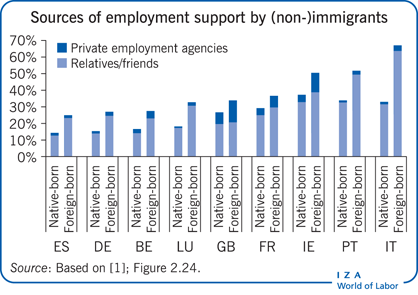Elevator pitch
Immigrants can initially face significant difficulties integrating into the economy of the host country, due to information gaps about the local labor market, limited language proficiency, and unfamiliarity with the local culture. Settlement in a region where economic and social networks based on familiar cultural or language factors (“ethnic capital”) exist provides an effective strategy for economic integration. As international migration into culturally diverse countries increases, ethnic networks will be important considerations in managing immigration selection, language proficiency requirements, and regional economic policies.
Key findings
Pros
Immigrants consider existing resources and networks created by their ethnic or cultural enclaves for location choices.
Ethnic concentration reduces information costs and provides employment opportunities in immigrant-owned enterprises, as well as opportunities for people with low language skills.
Ethnic concentration is particularly beneficial to immigrants with greater language and cultural differences to the host country.
Ethnic networks provide financial resources and business opportunities for specialized products and services in a secure market.
Ethnic capital and location choices can help immigrants integrate into the labor market.
Cons
Secured ethnic jobs and markets can impede social integration and slow gains in language proficiency.
Immigrants with minimal language skills risk being trapped in low-paid jobs based on ethnic employment.
Policies that favor settlement in regions away from existing ethnic enclaves may create new ethnic networks, but the effect may be temporary due to re-settlement into larger enclaves.
Immigration policies with language-proficiency requirements are important for facilitating the economic and social integration of immigrants.
